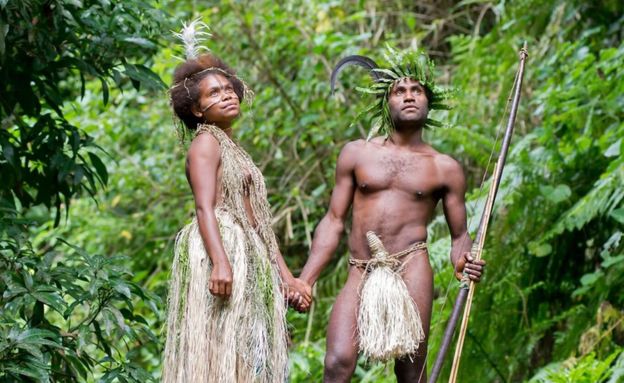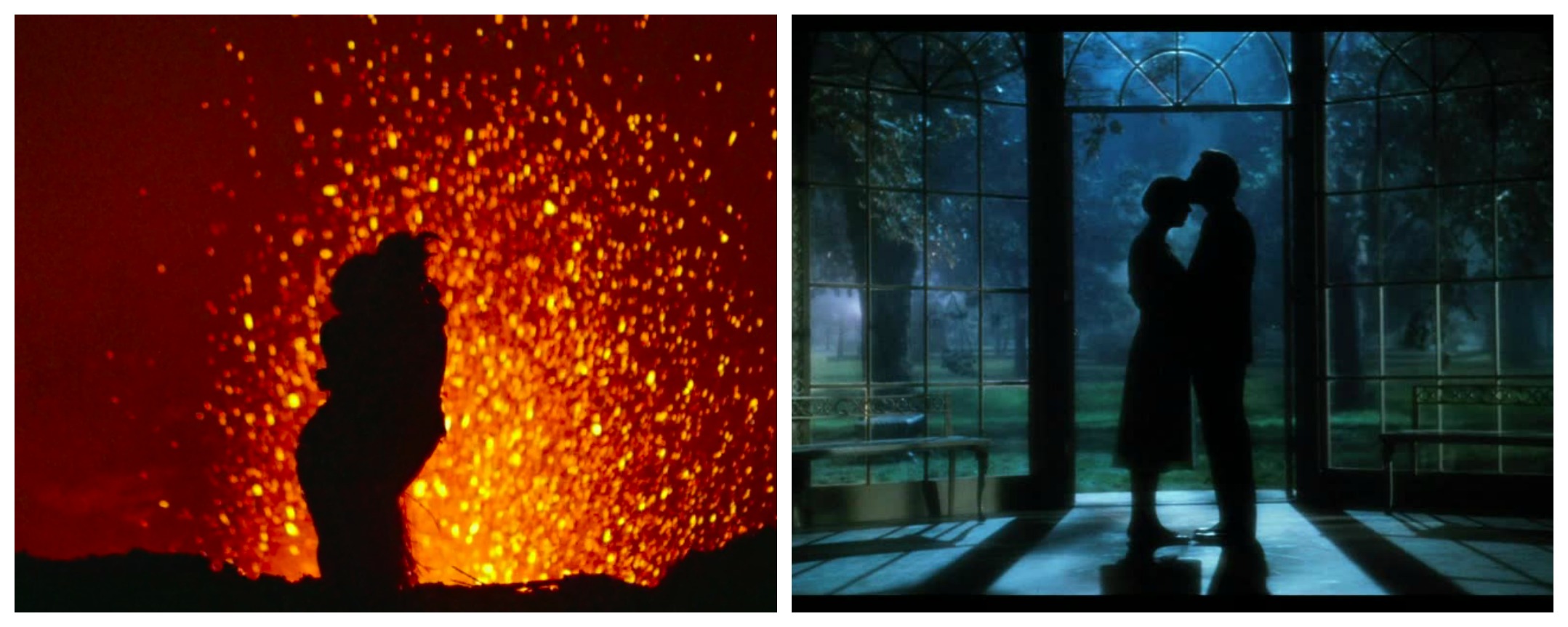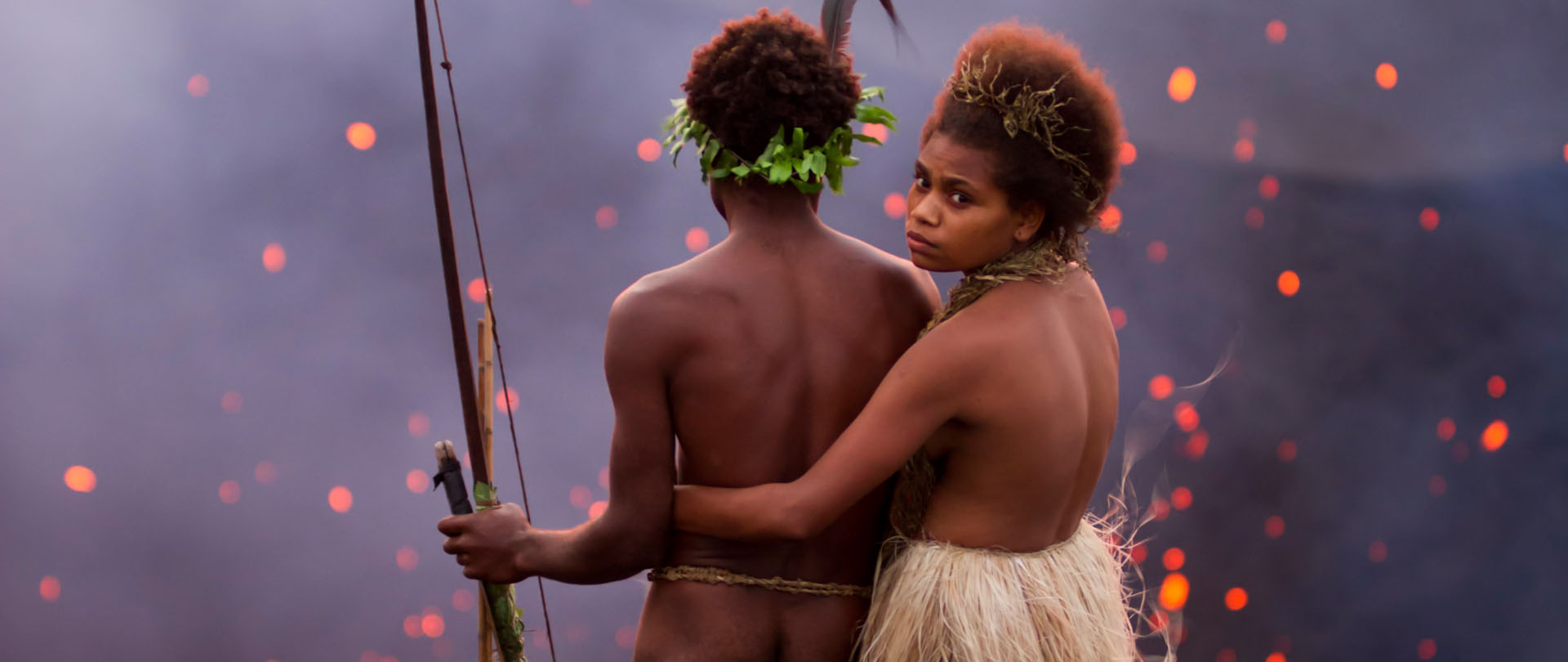Interview: 'Tanna' Directors Martin Butler and Bentley Dean on Australian Cinema, Oscar Season and Movies They Love
 Friday, February 10, 2017 at 3:00PM
Friday, February 10, 2017 at 3:00PM
By Jose Solís.

At first glance Tanna might seem like another take on the Romeo and Juliet story, as we see two star-crossed lovers, living in the title South Pacific island, fight their way in a society that doesn’t understand their love. But upon giving it a closer look, the film reveals itself to be a fascinating anthropological study about the way in which ancient civilizations have been able to maintain their traditions for centuries, as the colonizers around them always seem to be on the verge of self-destruction. Watching the idyllic living of the Ni-Vanuatu people in the film makes one wish our governments also found ways to listen to everyone in the community. But even when it’s clear that not everything in the island is good, after all they’re living in a conservative patriarchal society, directors Bentley Dean and Martin Butler are able to remove all romanticism, and deliver a document that works as a love story and an insightful look at a culture we know very little about.
The gorgeously shot Tanna features wonderful acting by the locals, non-professional actors who were chosen based on qualities that best approximated the characters they would play. For example leading man Mungau Dain was chosen because everyone believed he was the most handsome man on the island, and his leading lady Marie Wawa was chosen for her strength. The film was warmly received at the 2016 Venice Film Festival where it picked up two awards, and was selected as Australia’s Oscar submission for Best Foreign Language Film, making the final five when nominations were announced. I spoke to the directors about the challenges of shooting the film, their love for movies, and Oscar season.
Read the interview after the jump.
JOSE: You’ve worked together on many nonfiction projects before, why did you decide Tanna would be your first fiction feature?
BENTLEY DEAN: A number of factors, one of them was that we’d never made a fiction film before and we wanted to challenge ourselves. A more provocative take is it seemed like the easier option, in documentary you never know when the turning point in the narrative is going to happen because it’s real, so you almost have to sleep with the camera and your finger on the red button. I figured if we made a fiction film we’d decide when that turning point would happen. Our whole idea was to live with the community for seven months, so we also wanted to enjoy our time there, get to know the people, go to the waterfall after we shot our scenes.
MARTIN BUTLER: Bentley made the suggestion and I agreed it would be nice to get outside of our comfort zones, we needed to develop the skills to pull it off.
JOSE: From Stromboli to Joe vs the Volcano, the movies have always been fascinated with volcanoes, did any of those films influence your aesthetic choices?
BENTLEY DEAN: The Yasur volcano is seen as a living entity, she is seen almost as a creative being responsible for all life and death. She is definitely a character, she was always going to be in the film, and she would determine how she’d appear, she had mood swings, sometimes she was so violent we couldn’t approach her. We’d visit a place we’d visited the previous week, and we’d find it covered in lava. We didn’t research other volcano films though, maybe they were somewhere in my subconscious, but Yasur determined what we did, and of course the tribe told us what days we could go.
JOSE: There were so many moments in the film that made me think not necessarily of romance or volcano films, but classic musicals. The scene where you shoot the lovers against the eruption feels like something out of West Side Story or The Sound of Music.
BENTLEY DEAN: That was an irresistible shot (laughs) and also potentially too over the top, we have the lovers on top of a volcano and as they embrace for the first time there’s lava exploding in the background. On paper you would laugh, but somehow in the authenticity of the moment and the real live edginess of the volcano, it allows you to get away with it. We interviewed all of the tribe after they watched the film, and I was self-conscious about that scene because in their culture it’s also taboo to show signs of affection, but everyone from grandmothers to kids said that was their favorite scene.
MARTIN BUTLER: I was transfixed by the experience of being up in the volcano, so I thought it would work well on film.
I watched Contact which was also great, I’m sure this wasn’t premeditated, but all of your work is about Australian native people, how did this come to be?
MARTIN BUTLER: They have all the best stories! We’ve done two big projects, the first was Contact, it was unbelievable to hear about a real first contact between people from two very different cultures. These are also stories that haven’t been told in Australia.
BENTLEY DEAN: Both are also about discovering the richness of the culture, Australia has over 50 thousand years of history, in fact the very first human face depicted in painting is here in Australia. The first narrative painting in the world is here, we didn’t learn about this in school. Tanna is just a few hours away from Australia, but the first time I went ten years ago, it was incredible. They live like you see in the movie, they are half an hour away from a town, but they made this deliberate decision to live like their ancestors. People tend to think of indigenous people as unchangeable, but that’s not true, they are very capable of adapting to what benefits the entire tribe.
Martin, you mentioned they have the best stories, and I’m assuming many of them are lost because they are mostly done in the oral tradition. Are your movies another way to ensure they’re not lost?
MARTIN BUTLER: It’s incredibly important they’re not lost, they have a lot of formal meetings and speeches. They’re in the remote jungle so a lot of that material is lost, but there are organizations making sure they are preserved. From the tribe’s point of view, one of their motivations to engage in the film is they’re keen to have their stories recorded, and also shown all over the world. They know the kind of stories they have.
I read you showed them Ten Canoes, many of them had probably never seen a movie before, so I’m curious, when did you first fall in love with movies?
BENTLEY DEAN: I remember being extremely naughty and stealing the tiny, little black and white TV after being told to go to bed halfway through The Sound of Music, and watching that secretly under the covers. I needed to know what happened. You mentioned musicals before and maybe you’re right, maybe I was telling The Sound of Music in that volcano scene.

MARTIN BUTLER: It’s hard to say for me, I was very engaged in movies from a very young age, and my father was part of a small film society where they showed art films, all the Fellinis, Truffauts, classic movies of the 50s and early 60s. He brought me along with him, so from the age of 13 I was watching those classic movies. I can’t really pick one film, but being exposed to European art movies from a young age is what convinced me there was something to love there.
BENTLEY DEAN: That’s so you see Martin is the more sophisticated of the two of us.
I love that you picked Ten Canoes because it’s so important that people see themselves represented. What was the thought process behind picking the perfect movie to show them?
BENTLEY DEAN: Ten Canoes was the obvious choice, almost the only choice in a way. It gave us the opportunity to talk about process, Rolf de Heer made that movie in a very collaborative way, which is what we wanted to do as well. We knew it would be appealing to them to see people acting out their traditional lifestyle, there was a lot of discussion after they watched it. Stylistically our films are very different, but the process of Ten Canoes was what really appeal to us.
Do you think you gave the “movie bug” to any of the people in the island?
BENTLEY DEAN: If you were to suggest you’re making a film in Tanna they’d welcome you with open arms. They’d had documentary crews before, but I think we made it the right way by engaging in a process of respect with them. People are filming, we had a backup camera and we’d give it to them, they would go out and record songs, mischief making, old stories. But around the time we premiered in Venice they’ve been documenting the journey on their phones, imagine the scene where they’re dressed in traditional costume in St. Mark’s Square recording everything around them. They’ll do the same at the red carpet in Los Angeles in a few weeks, it’s the reverse of usual anthropological filmmaking in a way.

You referred to the volcano as a female force, which makes me think about modern feminism. How do you decide what Western concepts to introduce to a culture like this?
BENTLEY DEAN: We just relied on the way in which they talked about her, interestingly on the island, just on the other side, people refer to the volcano by a different name and as a male. For the people in our film she was a female, and they saw her as a living thing who controlled their lives. She’d rain ash, which when it’s too much it’s bad, but when it’s right, their gardens are beautiful.
MARTIN BUTLER: Their gender politics are extremely interesting, we wanted to show it how it was. What you see in the film is what we experienced.
BENTLEY DEAN: It’s also a very patriarchal society and the story we show in the film was great for women. It’s interesting to see how an event changes a patriarchal society, that are against tradition.
MARTIN BUTLER: It came from the bottom too, it was driven by the young people who wanted change, it’s an interesting sociological aspect.
The movie doesn’t have a title card at the beginning telling us what year we’re in, so I have to confess I was shocked to realize it was a contemporary story. Can you talk about this choice to leave the audience in suspense?
BENTLEY DEAN: To not give it a year was deliberate, we wanted to show the idea that it could’ve been in the pre-colonial past, but if you remember the actual reveal happens when the Shaman takes his granddaughter on the way to the volcano and points the very place where Captain Cook came into the island, then you see a church and hear the bells. I really like that moment, because you immediately have to reposition yourself in time. It actually says a lot about these people and how they’ve preserved their traditions.
It’s a great year for Australian movies at the Oscars, is it more special to have your film nominated this year?
MARTIN BUTLER: We’re very proud to be Australia’s nomination, I’m not claiming there’s something special this year in our cinema, it’s luck of the draw there are so many Australian films in contention this year, and we’re lucky to be one of them.
Tanna is now available on VOD and will be released on Blu-ray and DVD March 7, 2017 through Momentum Pictures/Sony Home Entertainment.
 Australia,
Australia,  Bentley Dean,
Bentley Dean,  Martin Butler,
Martin Butler,  Oscars (16),
Oscars (16),  Tanna,
Tanna,  foreign films,
foreign films,  interview
interview 


Reader Comments (3)
as usual, mr. solis gives us a thoughtful and out of the box interview.
Great interview :)
This movie is so good. What a shame not enough people will watch it.
And this was a great interview, Jose!